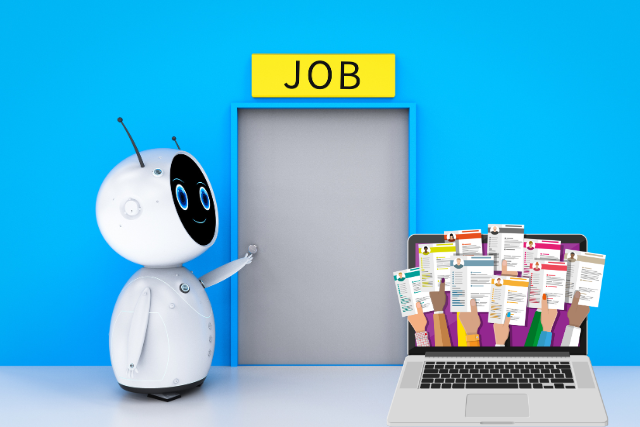Mid-Career Reskilling: Upskill Into AI in Just 6-12 Months

Have you ever thought about switching to a career in AI, even if you’re already well into your current profession? You’re not alone. The good news is that it’s more possible than you might think.
By figuring out where you stand now and identifying the critical AI skills you need, you can start a focused learning journey that could take just 6-12 months. This isn’t just about learning new things; it’s about making a significant career shift.
Let’s explore how you can make this leap, setting yourself up to meet and exceed your career goals.
Key Takeaways
- Use your existing skills to make the move into AI smoother.
- Follow structured learning paths based on your specific AI career goals.
- Focus on mastering Python, machine learning, and data interpretation.
- Get hands-on experience with real-world projects or freelance work.
Assessing Your Starting Point
Before you jump into AI training, it’s important to honestly assess where you are now in terms of skills and knowledge. This isn’t just looking back; it’s about preparing for a big step forward. Knowing what you already know, what you need to learn, and how ready you are to fill in those gaps is key.
Map Out Your Skills
Start by listing out your strengths and areas where you excel. What tools or technologies are you already comfortable with? On the other hand, what has always seemed just out of reach for you? Identifying these gaps isn’t about focusing on weaknesses but rather setting the stage for growth.
By understanding your current skills, you can better plan your journey toward AI mastery. It all starts with taking a good, honest look at where you are right now.
Identifying Key AI Skills
Once you have a clear picture of your current skills, it’s time to identify the AI skills that will propel you forward. If you’re looking to break free from your current role and step into AI, mastering these skills is essential.
Learn to Code
First, you need to get comfortable with programming. Languages like Python are crucial in the AI world. Python is widely used because it’s easy to learn and has a huge number of tools that make it ideal for AI and machine learning projects.
Work with Data
Next, understand how to work with data. AI relies heavily on data, so knowing how to handle and interpret it is vital. Skills in data cleaning, analysis, and visualization will help you stand out. This isn’t just about numbers; it’s about understanding the stories that data can tell.
Understand Machine Learning
Machine learning is another key area. Learning how algorithms work and how they use data to make decisions is at the core of AI. Start with the basics, like supervised and unsupervised learning, and learn how to implement simple algorithms.
Explore Neural Networks and Deep Learning
Finally, don’t forget about neural networks and deep learning. These are the technologies behind the most advanced AI systems. Learning about these concepts will open up opportunities to work on cutting-edge projects. Tools like TensorFlow and PyTorch can help you get practical experience in building deep learning models.
By focusing on these key areas, you’re not just learning new skills; you’re opening the door to a world of opportunities.
Choosing the Right Learning Path
With so many AI learning paths available, choosing the right one can feel overwhelming. The key is to find a path that fits your goals and learning style. Here’s how to break it down:
Define Your End Goal
Think about where you want to go. Are you aiming to be a data scientist, an AI engineer, or something else? Your end goal will determine the specific skills you need to focus on. For example, a data scientist needs to know a lot about data analysis, while an AI engineer might focus more on building and deploying AI models.
Consider Your Background
Your current experience will affect how quickly you can learn AI. If you already have some programming skills, you might dive right into machine learning. If you’re new to programming, you might want to start with basic Python courses first.
Choose Your Learning Format
Decide how you want to learn. Self-paced online courses, interactive boot camps, and university programs all have their pros and cons. Online courses like those from Coursera or Udemy offer flexibility, while boot camps provide more structure. University programs, while more intensive, offer in-depth learning.
Seek Support and Mentorship
Engaging with a community or finding a mentor can make a big difference. Platforms like Kaggle and Stack Overflow offer communities where you can ask questions and learn from others. A mentor can help guide you through challenges and keep you motivated.
Choosing the right learning path is about more than just checking boxes; it’s about finding the right resources that align with your career goals.
Real-World AI Applications
Seeing how AI is used in the real world can make this technology more relatable and less intimidating. AI is already a part of our daily lives, even if we don’t always notice it. Here are a few examples:
| Sector | Application | Impact |
|---|---|---|
| Healthcare | Predictive Analytics | Helps predict disease outbreaks and personalize treatment plans, improving patient care. |
| Finance | Fraud Detection | Detects unusual transactions and protects against scams. |
| Entertainment | Recommendation Engines | Suggests movies or shows based on your viewing habits, making it easier to find new favorites. |
These examples show that AI is not just about robots or futuristic tech; it’s about making processes more efficient and opening up new opportunities. As you learn AI, remember that you’re not just picking up technical skills—you’re preparing to be part of a revolution that’s changing how the world works.
Navigating Career Transition
Shifting your career into AI can seem intimidating, but it’s a great way to future-proof your job. The key is to approach this transition strategically so that it feels manageable rather than overwhelming. Here’s how:
Leverage Your Existing Skills
Start by identifying the skills you already have that can transfer to AI. Skills like problem-solving, critical thinking, and adaptability are in high demand in the AI field. Even if you’re coming from a non-technical background, there are likely skills you already have that will be valuable.
Commit to Lifelong Learning
AI is a field that’s always evolving, so continuous learning is essential. Take advantage of courses, workshops, and other learning opportunities to keep your skills up to date. The goal is to build a strong foundation in AI that you can continue to expand as you go.
Build a Network
Networking is key when transitioning into a new field. Connect with AI professionals, join relevant groups on LinkedIn, and attend AI-related events. Building these connections can provide support, advice, and even job leads.
Start Small, but Start Now
Don’t wait to get started. Even small projects or freelance gigs can help you build confidence and gain practical experience. For example, you could contribute to an open-source AI project or take on a small data analysis project on the side. These experiences will build your resume and give you the practical knowledge you need.
Moving into AI is a big step, but with the right skills and mindset, it’s a rewarding and forward-thinking career move.
Conclusion
You’ve learned how to assess your current skills, identify key AI skills, and choose the right learning path. Now, you’re ready to take your first steps toward a new career in AI. This journey will require commitment and continuous learning, but it’s also an opportunity to open up new career possibilities. Keep exploring, keep learning, and stay connected with the AI community. Your journey into AI is just beginning, and the possibilities are endless.
FAQs
1. Is it possible to transition into AI mid-career without a technical background?
Yes, you can transition into AI without a technical background. Many roles in AI value skills like critical thinking and problem-solving, which you may already have.
2. What programming language should I learn first for AI?
Python is the best starting point because it’s widely used in AI and has many helpful libraries.
3. How long does it typically take to upskill in AI?
With regular effort, you can build a solid foundation in 6-12 months.
4. Can I work in AI without a degree?
Yes, practical experience and a strong portfolio can be just as valuable as a degree.
5. What are some beginner-friendly AI projects I can start with?
You could start with projects like building a simple chatbot or analyzing data with machine learning.
6. How can I keep my AI skills relevant in the long term?
Keep learning through courses, reading AI blogs, and staying active in AI communities to keep your skills up to date.






